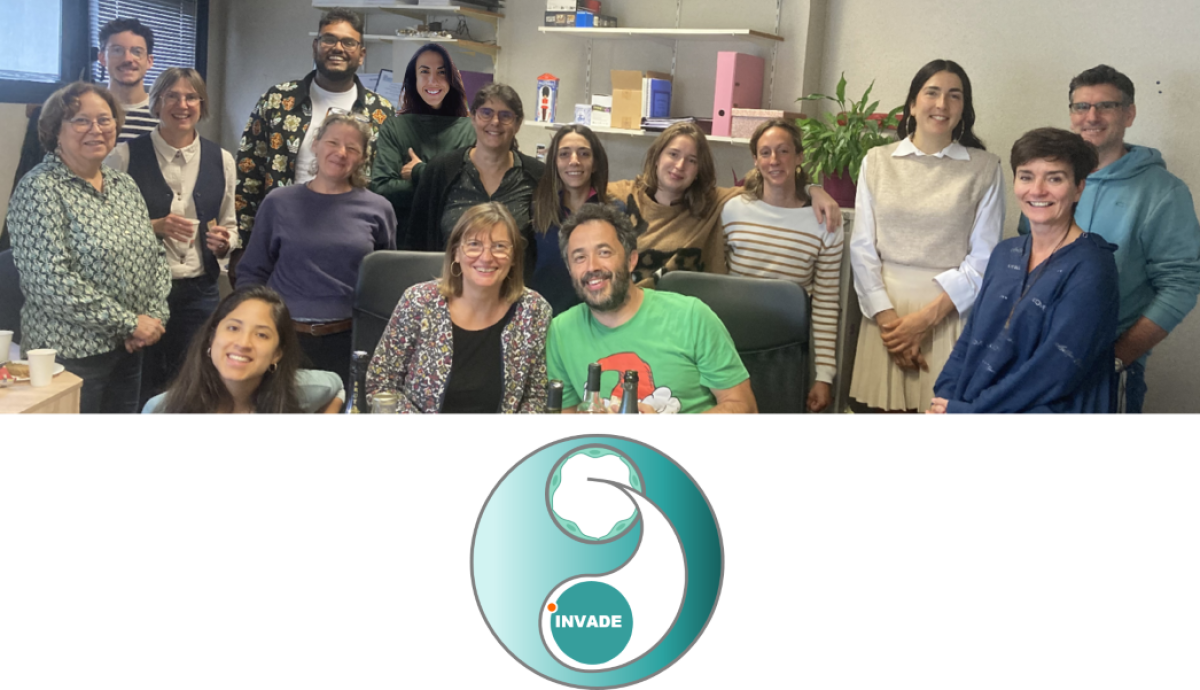Team
INVADE: Physio-pathological invasion in tissue development and homeostasis (emerging group)
Dpt: Environnement, Reproduction, Infections, Cancer
Our research activities
The INVADE team aims to study the physiological and pathological processes of invasion. Our work focuses on gaining a comprehensive understanding of the physical principles and molecular mechanisms that enable cells to invade tissue. We work on a variety of cellular models (macrophages, endothelial cells, megakaryocytes, metastatic cancer cells, etc.), which allows us to propose targeted strategies aimed at limiting unwanted invasion by diseased cells while preserving physiological invasion such as during the immune response or platelet production.
Our studies integrate cell biology, synthetic biology, biophysics, bioinformatics, and advanced microscopy techniques through partnerships with national and international collaborators. Our project is structured around three key objectives, reflecting the common interests and synergy between the team's researchers.
Eva FAUROBERT
Team leader, DR2 CNRS
Olivier DESTAING
Team leader / Scientific coordinator - DR2 CNRS
Our research axes
Our major publications
See all publicationsOur collaborations
- • National collaborations:
- Christine Brun, TAGC Marseille : Modeling information transfer in ppin network
- Gergo Gögl, IBV Nice : High through-put mapping of affinities of optoSFKs partners
- Laurence Calzone, institut Curie, Paris : in silico Boolean modeling of invasive properties
- Anita Michel-Eckly, EFS Strasbourg : Characterization of the mechanical properties of the PodoPZ in MKs invasion
- Isabelle Bonnet, Institut Curie, Paris : Phototagging of optogenetically controlled tumor models
- Stéphane Vassilopoulos, Inst. Myologie-Sorbonnes Université
- Thierry Dubois, Inst. Curie-Paris, methylation signaling in cell biology and cancerology
- Renaud Poincloux, IPBS-Toulouse, podosomes biology in macrophages
- Claude Verdier/Pierre Recho, LIPHY Grenoble : Mechanical measurements and modeling during invasion properties
- Claire Rome, Grenoble Neurosciences Institute: Preclinical tests in mouse models by MRI
- • International collaborations:
- Hans Van Oosterwyck and Susana Rocha, KU Leuven Belgium : Biomechanics and microfluidic models of CCM
- Souvik Kar, International Neuroscience Institute, Hannover, Germany : CCM patient biobank, mechano-dependent non-coding RNAs
- Cheng Han Yu, HKU Med-Hong-Kong: cell signaling in invadosomes
